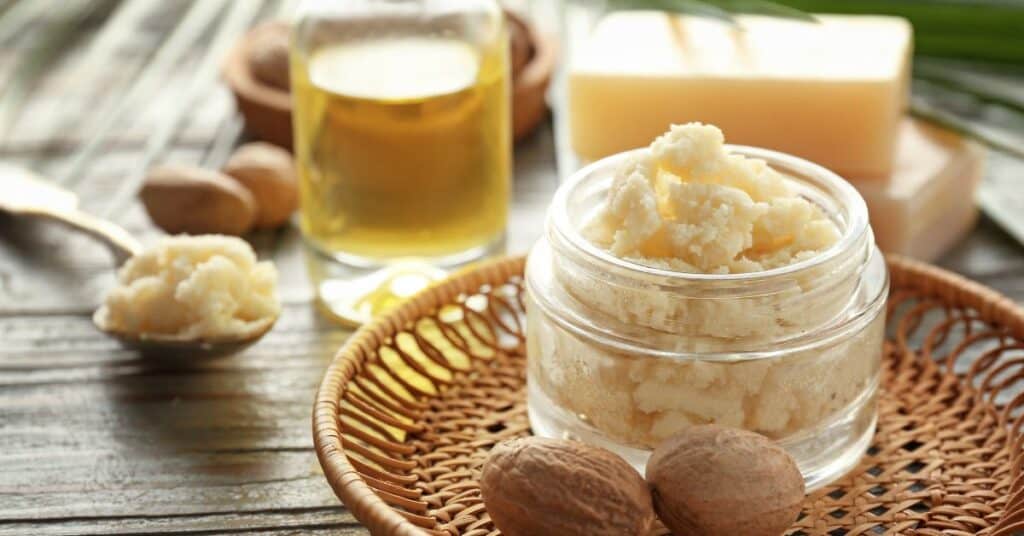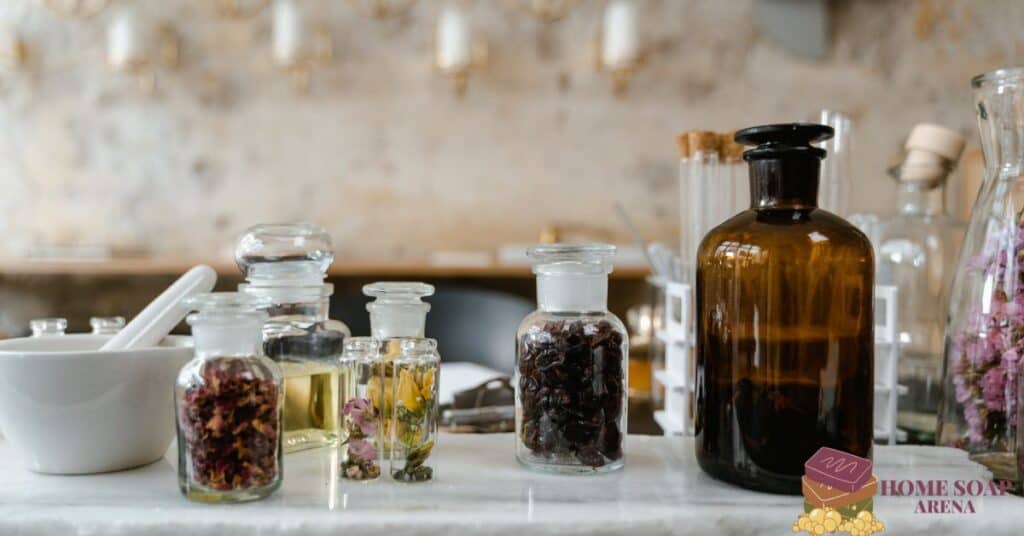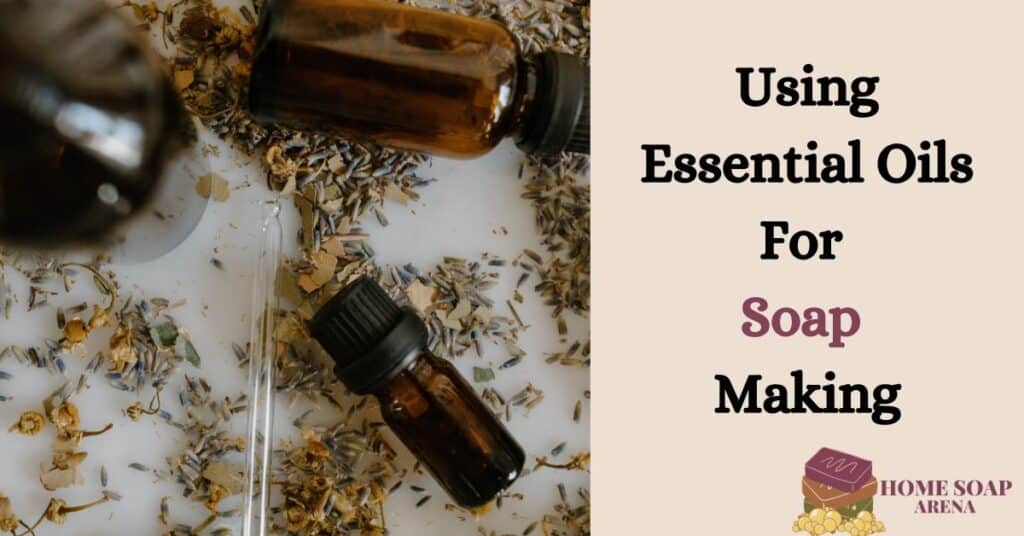Table of Contents
- What Are The Common Soap Making Oils?
- What Properties Will Be Given To Soap Made With Palm Oil?
- What Kind Of Oil Do You Use In Soap-Making?
- What Properties Will Be Given To Soap Made With Olive Oil?
- What Properties Will Be Given To Soap Made With Coconut Oil?
- What Are The Qualities Of Soap-Making Oils?
- Not Much Foaming. How Do You Pick The Best Oils For You
- Final Thought
Would you want to know the properties of oil for soap making? I can tell you everything you need to know about oil for making soap because I’ve done it before and still doing it.
This article talks about all the different types of soap-making oils and their qualities, such as how hard they are, how they condition, how they bubble, how they clean, and how long they last.
One of the best things about making soap is changing every ingredient to make it your own. There are endless ways to mix oils, scents, colors, and techniques.
The oils and butter you use are one of the most essential parts of any recipe.
They change how well the bars foam, how moisturizing they are, and what patterns you can make.
To help, I’ve compiled the most complete guide to set oils you can find right now. You can use it as a guide when changing the oils in a natural soap mix.
Now, let’s get started.
What Are The Common Soap Making Oils?
Listed below are some of the common soap-making oils:
1. Two years of argan oil
Making hair and skin care items with argan oil is a great idea. You can feel it smooth and soft, with vitamins E and A. Up to 10% of it can be used in the cold process.
2. Oil from cottonseed
Most soap makers may need to learn more about cottonseed oil because it’s not usually on their list of main oils.
However, using “Crisco” or veggie shortening in your soap means you’ve probably used cottonseed oil.
Shortenings like Crisco, and most of them are made from cottonseed and soybean oil that has been processed. It helps create some nice, smooth suds that is good for your skin.
A few years ago, cottonseed oil got a bad name because of stories that heavy amounts of pesticides were used on cotton crops and that the cotton business used farming methods that were not sustainable.
A lot of people have different ideas about this. But cottonseed oil does make lovely soap, whether you use it as the oil or as a shortening.
3. Oil from avocado
Most cold-process soap recipes call for 20% avocado oil or less to work. This makes a soft bar of soap.
It has a lot of vitamins A, B, D, and E. This oil is great for lotion, body butter, and conditioner because it has a lot of fatty acids.
4. Grade A or extra virgin olive oil
Extra virgin and pure olive oils are made by pressing olives gently for the first time. Refined or Grade A oil is the best Grade for soap making.
It comes from the second pressing and has been lightly distilled or filtered. The famous “Castille soap” contains 100% olive oil, whereas “Marseille soap” must include 72% olive oil.
Most soap recipes call for olive oil as the first, and there’s a good reason. Olive oil soaps are gentle, make hard, white bars of soap (though high-oil soaps take longer to cure), and are great for the skin.
But Castille soap doesn’t make a lot of foam, and it feels a little sticky. Most soap companies mix olive oil with other oils to improve the suds.
What Properties Will Be Given To Soap Made With Palm Oil?
Palm oil is often used to make things that last longer and don’t melt. It can be used to create a hard bar with stable foam.
If you use palm oil in your soap, the bar will have a modest amount of qualities that clean and condition the skin. When it gets cooler, this oil turns solid.
It is sometimes used to keep the consistency of makeup. You can also make candles with palm oil. Palm oil is essential to making soap for most people because it lathers up nicely and hardens quickly.
But in recent years, palm oil has gotten a bad name because it is only sometimes sustainable.
It is essential to know that all the Palm Oil we sell at the Soap Kitchen comes from a responsible source and meets all of the “RSPO” standards.
Tests were done on soaps made from pure palm stearin (PS) and palm kernel fatty acids (PK).
The soaps were checked for total fatty matter, sodium chloride content, moisture content, hardness, Hunter whiteness, foamability, iodine value, titer value, and acid value.
The study showed that these soaps were made from distilled palm oil and palm kernel fatty acids. More than 80% of the soaps were white and foamed nicely.
There was between 10 and 18% total fatty matter, 0.5 to 5% sodium chloride, and 0.1 to 1% free acidic, except for blend 8 with 10 PS:90 PK, which had 0.03% free caustic.
The initial entry measurement, which shows how hard the soap is, was between 32 and 126 mm, with 54 mm being the average. The best mixes of palm-based soaps have a value in this range (50–63 mm).
What Kind Of Oil Do You Use In Soap-Making?
Making bar soap with coconut, olive, or palm oil is easy. Castor oil is excellent for dry or sensitive skin and makes a great liquid soap.
To produce liquid soap, you can also use jojoba or almond oil. You can also make bar soap with avocado oil. This oil is thick, moisturizing, and makes a creamy lather.
Sat fats, however, are the best base oils for soap. They make it more challenging and last longer. Most of the time, solid oils like Coconut oil, Cocoa Butter, and Palm Oil need to be warmed before they can be used.
After that, fatty fats can be added to the soap because of their usefulness. Here are some examples of this kind:
- Sweet almond oil is good for caring for your skin and keeping it moist.
- Avocado oil is good for you. It keeps your skin fresh and is full of vitamins. This oil is excellent for making gentle soap bars for babies, kids, and people with skin problems like acne.
What Properties Will Be Given To Soap Made With Olive Oil?
Olive oil makes a hard soap that lasts a long time and has a gentle foam that cleans all skin types, even sensitive skin.
Because it has a lot of oleic acid, soap made from olive oil will help keep your skin soft and healthy.
However, each soap maker has a favorite olive oil that they like to use. In making soap, virgin olive oil, refined olive oil, and pure olive oil, all trace more slowly.
These oils are used when a slower trace is wanted, like when you want to split your soap into pieces to mix them.
Because pomace olive oil is less expensive than other olive oils, many soap makers use it to reduce the cost of making soap. When you use it in recipes you want to spread, be careful because it speeds up the trace.
SoapersChoice.com’s Refined A Olive Oil is what I always use. This is the best olive oil I’ve ever used. It turns into a bar of soap more complicated than virgin or pomace soap, lighter in color, and even better lathers in castile soap.
If you have never made soap before, I suggest comparing batches where you change the olive oil to see which kind you like best in your recipe.
What Properties Will Be Given To Soap Made With Coconut Oil?
Coconut palm fruit yields coconut oil. It is a food oil that can be eaten. You can cook with coconut oil, and it’s good for you in many ways.
It’s also good for your skin and hair. People have used the oil to treat their skin and hair naturally for centuries.
The native people of the warm islands where coconuts grow have known for a long time that this oil has unique qualities that make it useful in many situations. Lauric acid in coconut oil kills germs and reduces facial irritation.
Oil has been used in soap for a very long time. People used it in Polynesia and other Pacific Island countries to clean themselves.
One more good thing about coconut oil is that it is often used in traditional Indian Ayurvedic healing. Coconut oil in natural and organic soaps and skin care items has grown recently.
Here are some more things that soap made with coconut oil can do:
1. Keeping the skin wet: Coconut oil protects the skin by keeping it moist. Coconut oil contains antioxidants, good fats, and vitamins, such as vitamin E, amino acids, lauric acid, and caprylic acid.
2. Rich Lather: Adding coconut oil to cold-process soap is a great way to make a healthy lather.
When you mix Potager’s list of certified organic ingredients with the creamy texture of organic coconut oil, you get a rich lather that cleans and moisturizes your skin.
Regarding acne and rashes, coconut oil is a good choice because it contains antioxidants. The antimicrobial qualities of the medium-chain fatty acids in coconut oil keep skin free of germs.
3. Removing inflammation: Coconut oil was examined to determine whether it may help alleviate chronic skin irritation.
Cultured coconut extract may work because it has a lot of antioxidants and fatty acid parts that can help treat inflammation.
4. Healing the Skin: Coconut oil is quickly taken by the skin, and its healthy fats help the skin stay healthy and soft to heal itself better. Coconut oil has amino acids and vitamin E that can help heal minor cuts and lessen scars.
What Are The Qualities Of Soap-Making Oils?
Different oils for making soap for other uses
It is essential to pick the suitable oils for your soap recipes, just like it is to choose the right items for any recipe.
Adding different oils to soap gives it other properties. Making the right soap bar is combining the oils in your recipe.
Here is a list of the most popular oils used to make soap, along with what they can do for your recipes:
1. Soap made from coconut oil and potassium cocoate:
This is the oil that everyone in the soap-making business uses to make liquid and bar soap. It has a high-lauric fatty acid profile that makes it possible to make one of the highest amounts of liquid soap.
It also foams and cleans very well and is generally cheaper than other oils. Unfortunately, better cleaning takes the skin off its natural oil, leaving it clean but dry and tight.
Plus, coconut oil soap only gets thick over time, which happens a lot with other soaps—mixing other oils with coconut before saponification is expected to get the right balance of cleansing, washing, and moisturizing.
Highly stable and not easily oxidized or rotten. Coconut Oil Soap doesn’t need any extra chemicals to keep it fresh.
What soap is made of:
- This soap foams and cleans the best of all of them.
- Too good at cleaning can make skin dry.
- Not likely to build up stickiness.
- Clear as glass
- Base soap that works well and doesn’t cost too much.
if you use more than 30% coconut soap, you should add moisturizers to keep the skin from drying out.
2. Sunflower Soap (potassium sunflower): We use high-oleic sunflower oil to make a good body recipe that is almost clear and see-through.
It has many of the same benefits as olive oil soap but costs a lot less. Sunflower soap, which is high in vitamin E, makes soap recipes more moisturizing and is said to leave behind a protected layer that keeps moisture in.
On the other hand, Sunflower Soap could be better; foam made up of tiny bubbles that look like loose cream.
What soap is made of:
- It works well with coconut and palm kernel oil to make a nice, smooth lather that is great for the skin. Use 2% to 20% to make it more moisturizing.
- Great for lubrication; an excellent base for shaving tools. This is one of our favorite ways to use this soap!
- Excellent ability to thicken when exposed to essential oils and sodium chloride.
Not Much Foaming. How Do You Pick The Best Oils For You
To pick the best one, consider how healthy it is, what kind of fat it contains, how it tastes, and how well it handles heat. If you overheat some oils, they will smoke and burn.
Oil does go bad after a while and won’t last forever. If you don’t open most oils, they will last a year. Most stay fresh for about six months after being opened.
Following that time frame, they might need to be corrected and taste bad. Keep your cooking oils out of the light and away from heat and light.
So, there are better ways to store it than putting it up above or next to the cooker. However, choosing oils that stay stable when cooking over high heat is essential.
When oils are heated past their smoke point, they break down, which can change the taste and make harmful chemicals for you.
Olive, avocado, sesame, and safflower oil are healthy food oils that can handle higher temperatures.
They also have vitamins, neutral fatty acids, and other chemicals that may benefit your health.
These are some of my favorite oils:
1. Olive Oil: Extra virgin olive oil has a lot of monounsaturated fat, which is good for your heart. Because it has a robust flavor, it’s not the best choice for baking or other things where you don’t want that flavor.
But it tastes excellent; put it on steamed veggies to make them taste better. As it is more widely known, EVOO is also used to make many tasty salad sauces. If you want to sauté or stir fry, use canola or peanut oils instead of this one because it doesn’t hold up to high heat.
2. Canola oil is a good choice for your health. It has the least saturated fat and the most heart-healthy monounsaturated and omega-3 polyunsaturated fats. More on fatty acid properties.
Each tablespoon has 6% cholesterol. It has a high smoke point and can handle high heat like peanut oil. Canola has a mild flavor, which makes it great for baking and cooking in a wok. It’s always in my kitchen.
3. Peanut oil is usually used when high heat is needed, like stir-frying or frying. It is used often in places like Chinese restaurants where works are used for cooking. It tastes nutty and is full of monounsaturated fats that are good for your heart.
Final Thought
Now that we have established the Properties of oil for soap making, making soap is a lot like being a scientist.
However, we react to base oils together to make something more useful. It’s not quite gold from lead, but it’s close.
Depending on the traits we want in the result, we use a lot of different oils. Also, here is a list of some of our most popular oils and what they do for soaps.
Avocado oil has vitamins E, D, and A that help the soap heal and moisturize.
Canola oil: This oil makes stable lathering soap that conditions and softens. To save money, canola oil is often used instead of better, more expensive oils like olive oil. C&L will never use canola oil.



